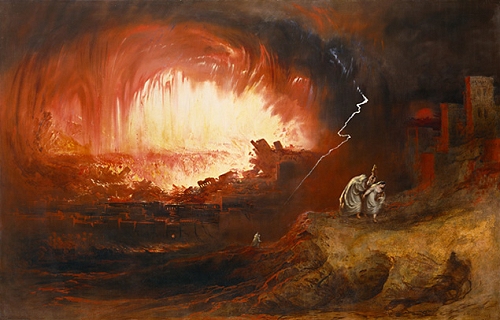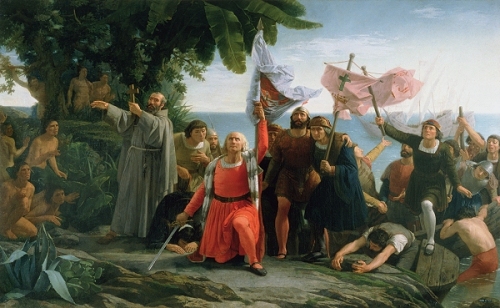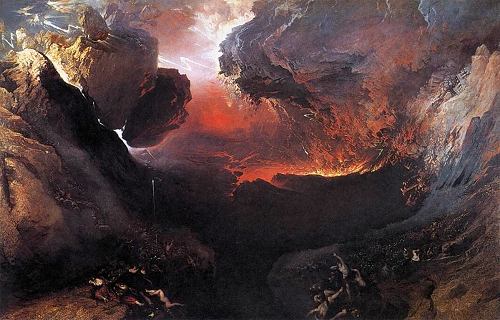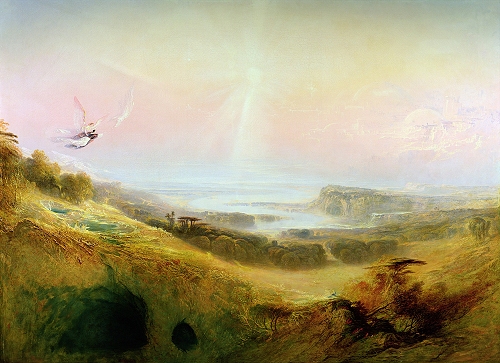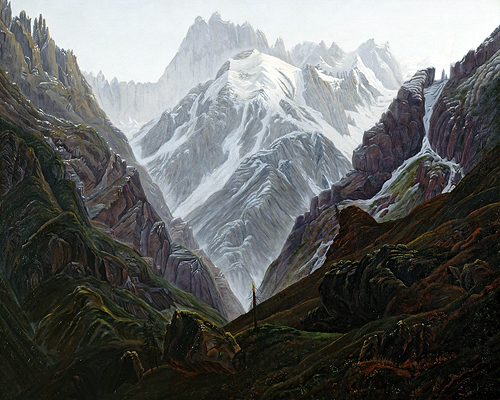ALONZO THE BRAVE, AND FAIR IMOGINEM.G. LewisA Warrior so bold, and a Virgin so bright
Conversed, as They sat on the green:
They gazed on each other with tender delight;
Alonzo the Brave was the name of the Knight,
The Maid's was the Fair Imogine.
"And Oh!" said the Youth, "since to-morrow I go
To fight in a far distant land,
Your tears for my absence soon leaving to flow,
Some Other will court you, and you will bestow
On a wealthier Suitor your hand."
"Oh! hush these suspicions," Fair Imogine said,
"Offensive to Love and to me!
For if ye be living, or if ye be dead,
I swear by the Virgin, that none in your stead
Shall Husband of Imogine be.
"If e'er I by lust or by wealth led aside
Forget my Alonzo the Brave,
God grant, that to punish my falsehood and pride
Your Ghost at the Marriage may sit by my side,
May tax me with perjury, claim me as Bride,
And bear me away to the Grave!"
To Palestine hastened the Hero so bold;
His Love, She lamented him sore:
But scarce had a twelve-month elapsed, when behold,
A Baron all covered with jewels and gold
Arrived at Fair Imogine's door.
His treasure, his presents, his spacious domain
Soon made her untrue to her vows:
He dazzled her eyes; He bewildered her brain;
He caught her affections so light and so vain,
And carried her home as his Spouse.
And now had the Marriage been blest by the Priest;
The revelry now was begun:
The Tables, they groaned with the weight of the Feast;
Nor yet had the laughter and merriment ceased,
When the Bell of the Castle told,—"One!"
Then first with amazement Fair Imogine found
That a Stranger was placed by her side: His air was terrific;
He uttered no sound; He spoke not, He moved not,
He looked not around,
But earnestly gazed on the Bride.
His vizor was closed, and gigantic his height;
His armour was sable to view:
All pleasure and laughter were hushed at his sight;
The Dogs as They eyed him drew back in affright,
The Lights in the chamber burned blue!
His presence all bosoms appeared to dismay;
The Guests sat in silence and fear.
At length spoke the Bride, while She trembled, "I pray,
Sir Knight, that your Helmet aside you would lay,
And deign to partake of our chear."
The Lady is silent: The Stranger complies.
His vizor He slowly unclosed:
Oh! God! what a sight met Fair Imogine's eyes!
What words can express her dismay and surprize,
When a Skeleton's head was exposed.
All present then uttered a terrified shout;
All turned with disgust from the scene.
The worms, They crept in, and the worms, They crept out,
And sported his eyes and his temples about,
While the Spectre addressed Imogine.
"Behold me, Thou false one! Behold me!" He cried;
"Remember Alonzo the Brave!
God grants, that to punish thy falsehood and pride
My Ghost at thy marriage should sit by thy side,
Should tax thee with perjury, claim thee as Bride
And bear thee away to the Grave!"
Thus saying, his arms round the Lady He wound,
While loudly She shrieked in dismay;
Then sank with his prey through the wide-yawning ground:
Nor ever again was Fair Imogine found,
Or the Spectre who bore her away.
Not long lived the Baron; and none since that time
To inhabit the Castle presume:
For Chronicles tell, that by order sublime
There Imogine suffers the pain of her crime,
And mourns her deplorable doom.
At midnight four times in each year does her Spright
When Mortals in slumber are bound,
Arrayed in her bridal apparel of white,
Appear in the Hall with the Skeleton-Knight,
And shriek, as He whirls her around.
While They drink out of skulls newly torn from the grave,
Dancing round them the Spectres are seen:
Their liquor is blood, and this horrible Stave
They howl.—"To the health of Alonzo the Brave,
And his Consort, the False Imogine!"
1796
Originally published in Lewis's masterpiece
The Monk (arguably the finest novel in the Gothic horror genre), this ballad on the theme of the spectre bridegroom clearly shows the influence of Gottfried August Bürger's "Leonore."
